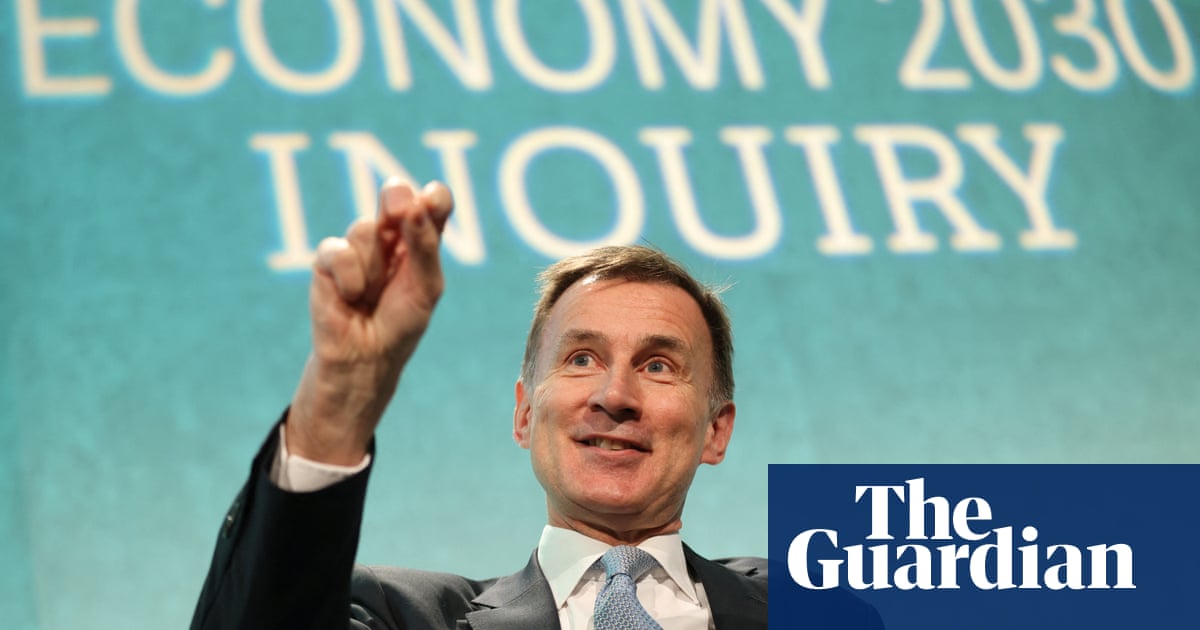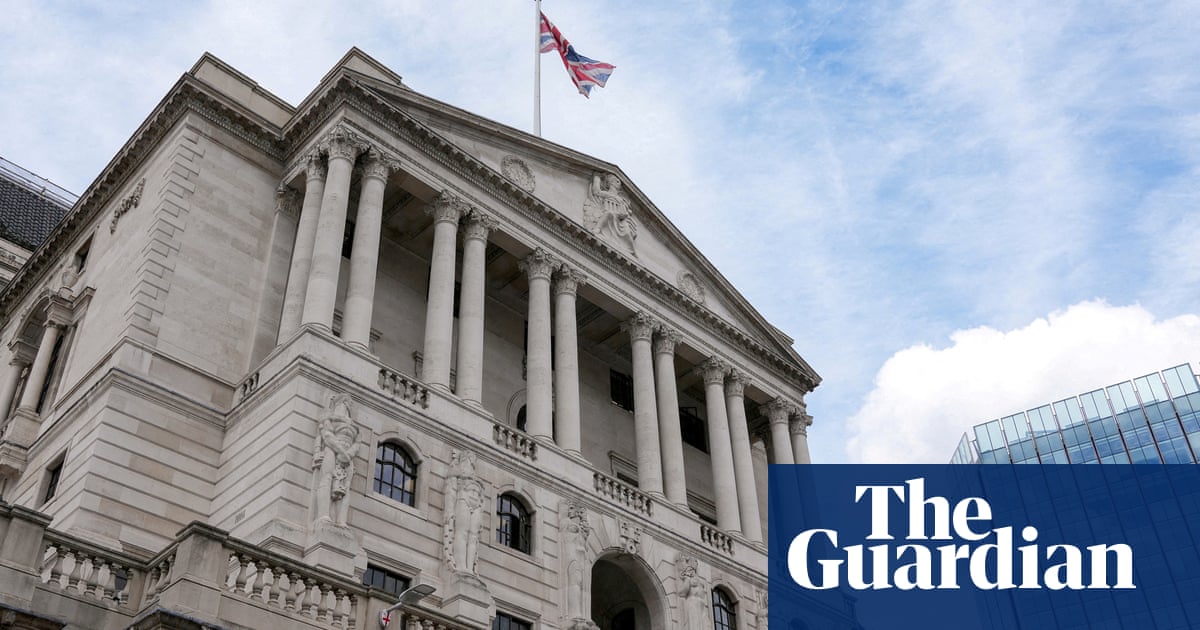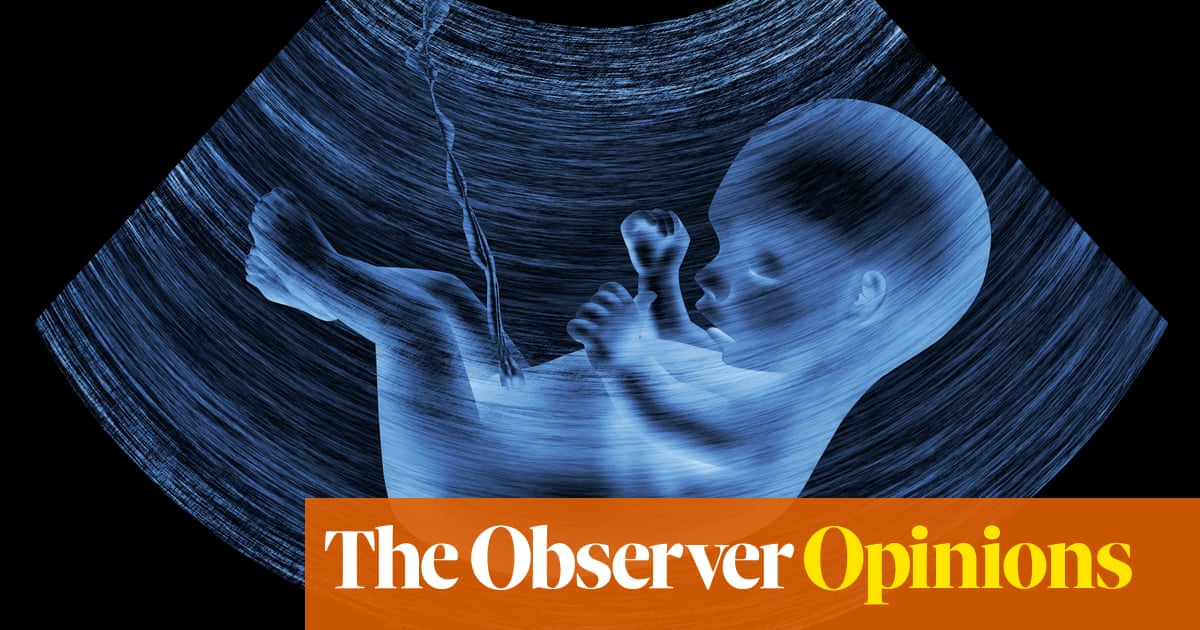
Who’s in charge? The 400lb silverback called “the markets”. Sending for the zoo-keeper with a bucket of fruit seems to have calmed the beast for now, but £32bn-worth is not enough. The gorilla will be back in a fortnight, which will mean more of Jeremy Hunt’s promised “difficult decisions”, more taxes and more spending cuts. The worst is yet to come.
How did they do this to us? This party has taken the country through 12 years of economic calamity. Long before Truss, its all-pain-no-gain austerity caused household income growth to drop back: between 2007 and 2018 the UK fell behind the rest of Europe, with only Greece and Cyprus experiencing lower economic growth. Incomes in France grew by 34% and in Germany by 27%, while the typical UK income dropped by 2%.
Next it brought us a kamikaze Brexit, which damaged growth and trade, trust in the City and Britain’s reputation as responsible internationalists and treaty-keepers. It did this while speed-hiring and firing ever more improbable leaders and cabinets. Finally the crash of Trussonomics has exposed the ideology that Brexit had camouflaged: it was never “take back control”, but “lose all control”. The ultra-free marketeers were today eaten up by their idolised free-market gorilla.
You need that reminder of the disgraced Conservative party to understand how it can be that Hunt emerges as the stabiliser, calling himself a “compassionate Conservative”. He may have applied a tourniquet, but he plans to cut off the blood supply permanently as he warns that every department faces cuts – deeper cuts than those already caused by pay rises and inflation costs having already been stripped from existing budgets. He is, after all, the health secretary who sat through six years of cabinet agreeing to NHS funding settlements that increased at the lowest rate ever, a fall in spending per capita for a growing and ageing population, green-lighting the axing of doctor and nurse training places. He shape-shifted as chair of the health select committee, begging for more for workforce training, social care and capital. Will he spare those now?
What a good day for the annual audit of public services to appear. Hunt should read its grim findings before wielding his cleaver. The performance tracker, from the Institute for Government and CIPFA, surveys services, from the NHS and schools to prisons, councils, courts and care: it gives a devastating picture of a collapsing public realm. Here’s its summary of 12 years of damage: “Public services won’t have returned to pre-pandemic performance by the next election, which in most cases was already worse than when the Conservatives came to power in 2010.” Each day brings random examples of public ruination: more than 60 public swimming pools have closed in the last three years, yet ministers keep claiming it’s easy to “trim the fat”.
Conservatives might split into 57 varieties yet they all taste much the same. Ever since the party’s takeover, first by Thatcherites then by Ukippers, they have tracked rightwards. Their fractious factions are the “narcissism of small difference”, as each new leader rejects the last, adopting a new style but only pretending to start anew. Look what they all voted for, including so-called One-Nationers. Robert Halfon called the Trussites “libertarian jihadists”, yet look at the social injustice he and others like him voted for in recent years.
Among EU countries, only Bulgaria is more unequal than us. Rishi Sunak, likely to try for the office of prime minister again if the opportunity arises, boasted to Tunbridge Wells Tories that he shifted money out of “deprived urban areas” into wealthy towns like theirs. We don’t know yet if Hunt will protect benefits, but they’ve been cut in seven out of the last 10 years, with a four-year freeze, an overall cap, a two-child limit, bedroom tax and other brutalities ensuring benefits rose at less than the rate of inflation. The interim report from the Economy 2030 Inquiry from the Resolution Foundation shows: “Low-income households in the UK are now 22% poorer than their counterparts in France, and 21% poorer than low-income households in Germany.” But pensioners – overwhelmingly Tory voters – have been protected with an average £510-a-year real pension rise since 2010, while families with children have lost an average of £375 during the same period.
Polling shows that voters now consider the Tories as a party only for the rich. Hunt reinforced that by failing to put back the totemic cap on bankers’ bonuses, whose pay will soar while struggling mortgage payers see banks wallowing in extra cash from rising interest rates. One tax cut that Hunt left untouched again benefits the well-off most: the plan to abolish the national insurance levy.
As they seek any glimmer of light in the gathering gloom, you can hear some Tories gloating over the misery that Labour will inherit. A Sunday Times editorial even suggests that going for an election “would be more strategically astute for the Conservatives to let Labour confront the economic challenges of the next few years”.
Well, bring it on, Labour replies. Tunnel-vision Toryism thinks spending cuts are the only way to balance the books, but Labour has other plans. Rachel Reeves asks today: “Why won’t they bring in a windfall tax on energy producers to help foot the bill?” Bloomberg reports that UK energy companies will make up to £170bn in excess profits. Windfalls might apply to banks’ mortgage bonanzas or to the six companies that made £16bn excess profit during the pandemic. Labour’s plans are only half-announced, pending the state of the Treasury. But so far they include abolishing non-dom status (worth an extra £2bn) and putting VAT on private schools (£2bn).
Labour’s green prosperity plan lays out £28bn-worth of investments in renewables and insulation, with profits being ploughed back into a state-owned Great British Energy company. Nor does its plans frighten markets, with John Allan, the chair of Tesco, only the latest to say that he sees “no Tory growth plan” but the emergence of “quite a plausible” one from Labour.
Other possibilities abound. Prof Arun Advani of Warwick University says a one-off 1% raid on wealth, to be paid over five years, would raise £80bn. The economist Richard Murphy thinks the £60-£70bn a year invested in tax-free ISAs should only earn that tax relief if invested in productivity-boosting green government bonds. In wartime, wealth was conscripted, so why not now?
In all this tumult brought to us by the Revolutionary Brexit party, we get an occasional sunburst, like this: Suella Braverman stands ready to serve as leader, one minister tells the Financial Times. “Suella is going for the ERG vote.” Well, in the house of the damned where the latest poll suggests 219 Tories would lose their seats in a general election, why not?
Polly Toynbee is a Guardian columnist












